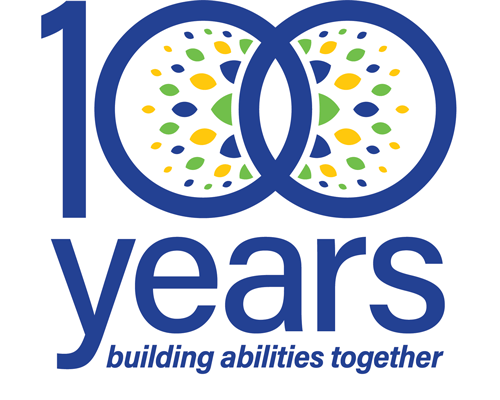Tim Elmer (1986)
Disclaimer: The following was transcribed from an article in the Capper Foundation Archives. The choice of words used at the time this was written may not reflect current Capper Foundation inclusive language and views.
Joy of Work
by Tim Elmer
For some a job is an inescapable burden. Weekdays are a bore. Fridays are greeted with TGIF relief.
For people with disabilities, a job is a blessing, a welcome relief from boredom, something to look forward to.
 This is clearly evident at the Capper Foundation for the physically and mentally handicapped, where the residents are offered a variety of employment opportunities through the Capper Work Center.
This is clearly evident at the Capper Foundation for the physically and mentally handicapped, where the residents are offered a variety of employment opportunities through the Capper Work Center.
Mary Martel, director of the work center, said the center bids on jobs in the business community and brings the work to the center, providing to the handicapped employment opportunities that would not otherwise be possible for them.
“We have about 30 handicapped people who are not competitive in the regular workplace but certainly can work,” she said. “They love the chance to do something productive and get paid for it. Some here make as little as $5 and some as much as $50 each week. The most important thing is not so much the pay but the feelings of self-esteem that come with doing something worthwhile and productive.”
By Breaking down each job into level-of-difficulty components and matching them with the work skills and capabilities of each person, almost everyone has a chance to participate in some kind of employment.
Jobs include book bindery work, assembling and packaging thermometer probe covers, cutting wood floor joist bridging, making shadow boxes, making kite reels, typing mailing labels and stuffing envelopes.
Although the Capper Work Center is just beginning to use computers for job-related activities, staff members are optimistic that computers can be of great benefit to increase worker productivity and to expand job opportunities for an increasing number of the handicapped.
That computers can help the handicapped increase their work productivity has already been evidenced in the mailing label department.
By using computers, workers can easily correct a typing mistake, eliminating the necessity of having to retype an address as was the case when typewriters were used. Also, the light keystroke tension of a computer keyboard makes it easier for those using head sticks to type mailing labels.
Glinda Thomas, who is confined to a wheelchair and has very limited use of her arms and hands, uses a head stick to type addresses. She can process about 75 to 100 addresses in a four-hour period.
Although she and others found computers intimidating at first, they are now very comfortable with them and are proficient at using a complex, commercial database program to process and store addresses.
The single biggest advantage of using computers and a database program for preparing mailing labels is that addresses no longer have to be retyped each time a business orders another batch of labels. Addresses are stored on a disk, and adding new addresses to a list is a simple process. Consequently, productivity increases dramatically.
“Since we switched from typewriters to computers, the average number of labels that we process for each business has increased from about 300 to more than 1,600,” Martel said.
In the woodworking shop, computers have not yet been implemented to help the handicapped operate power tools. However, John Thornburg, the production manager, said that although not currently affordable, the technology is available to allow very severely handicapped people to run power tools.
For example, computer-controlled saws and lumber-feeding machines would make it possible for the severely handicapped to cut floor joist bridging, a job that is currently limited to those who have some degree of hand and foot mobility.
“We have an eyebrow switch, which straps onto a person’s head that can be activated simply by moving an eyebrow up and down. It would be easy to connect the switch to a computer-controlled saw and lumber-feeding machine, making it possible for those with no use of their arms and hands to run the equipment,” Thornburg said.
In short, he said, the more severely handicapped a person is, the more help he or she needs to perform productive tasks. Computers offer almost unlimited possibilities to help severely handicapped people to do work that has never before been possible.
In the not-so-distant future, computers will make it possible for nearly any handicapped person who wants to work to do so, he said.

